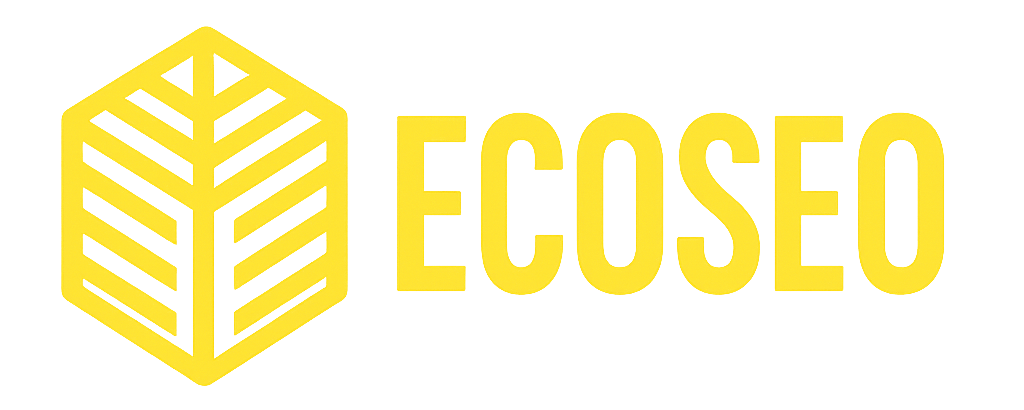In the SEO world, link-building remains one of the most potent and influential strategies. According to a study by Firstpagesage, link signals (quality and quantity of backlinks) contribute to around 13% of the factors influencing Google’s ranking algorithms.
When done right, it can dramatically boost the rankings of your website, increase organic traffic, and enhance your domain authority. But it’s not just about gathering links from any site—it is about acquiring quality links that matter.
In this article, we will explore the art of link building, its importance, and how to do it effectively.
What is Link Building?
Link building is the process of acquiring hyperlinks from other websites to your own. Links are a critical part of SEO because they act as a “vote of confidence” from one website to another, indicating trustworthiness, value, and relevance. Search engines like Google consider backlinks as one of the top-ranking factors.

Why is Link Building Important for SEO?
Search engines use backlinks to assess the credibility and relevance of your site. The more high-quality backlinks you have from reputable sites, the higher your site will rank.
Here’s why link building is crucial for SEO:
Link building is crucial to SEO because it plays a central role in determining your website’s ranking on search engines. Here’s a deeper look at the various reasons why link-building is so important:
Signals Trust and Authority
When authoritative websites link back to your content, it signals to search engines that your content is trustworthy and valuable. This can improve your site’s domain authority, ultimately boosting your rankings.
Enhances Search Engine Rankings
Links are one of the most powerful ranking factors for search engines. A strong backlink profile often correlates with higher rankings for competitive keywords.
Drives Quality Traffic
Backlinks don’t just help with rankings—they can drive quality traffic to your site. Links from high-traffic websites can result in more visitors who are genuinely interested in your content, products, or services.

Improves Brand Visibility
Being featured on authoritative websites can boost your brand’s visibility. Link building helps you establish your brand’s presence across multiple platforms and increases its exposure to new audiences.
Build Relationships within Your Industry
Through link-building strategies like guest blogging and influencer collaborations, you form relationships with others in your industry. These connections can lead to more backlink opportunities in the future.
Increases Organic Click-Through Rates (CTR)
Search engines tend to favour content that’s been shared and linked to frequently. As a result, high-quality backlinks can improve your CTR from search results, further boosting your SEO efforts.
Long-Term Results
While some marketing efforts may yield quick results, the benefits of link-building accumulate over time. A solid backlink profile continues to pay dividends, often long after the initial link-building campaign.

10 Best Link-Building Techniques
Here are 10 effective link-building techniques that can help improve your website’s SEO
Content Creation
Develop content that is insightful, unique, or comprehensive. This could be blog posts, videos, e-books, or infographics.
SEO Value: High-quality backlinks from this content can increase your site’s authority and ranking. It also drives organic traffic due to the content’s value.
Tools/Websites:
- BuzzSumo for content trend analysis.
- SEMrush or Ahrefs for keyword research to ensure your content targets what users search for.
Guest Blogging
Find blogs in your niche that accept guest posts. Write a high-quality article, and submit it with a link back to your site usually in the author bio or relevant context within the post.
SEO Value: Builds relationships, increases your exposure, and provides direct backlinks.
Tools/Websites:
- Hunter.io or Voila Norbert for finding the email addresses of blog owners.
- Moz’s Guest Blogging guidelines to find sites accepting guest posts.

Broken Link Building
Use SEO tools to find broken links on other websites, then contact the site owner with your content as a replacement for the dead link.
SEO Value: You help fix the web while gaining a valuable backlink, enhancing user experience and SEO.
Tools/Websites:
- Ahrefs or Check My Links for finding broken links.
- Screaming Frog SEO Spider for site audits.
Skyscraper Technique
Find popular content, create something superior, then reach out to those who linked to the original asking them to consider linking to your improved version.
SEO Value: Directs link equity from established content to your new content, potentially boosting rankings significantly.
Tools/Websites:
- Ahrefs to analyze backlinks of competing content.
- Moz’s Open Site Explorer for similar insights.
Resource Pages
Find resource pages in your niche and pitch your content for inclusion.
SEO Value: These pages are often used by others looking for information, providing a steady stream of backlinks.
Tools/Websites:
- Ahrefs or SEMrush to find resource pages by searching for keywords like “resources” or “useful links.”
Qwoted:
Similar to HARO, Qwoted connects journalists with expert sources. It offers a more curated experience where journalists can find experts without sifting through spam.
Features: Includes pitch intelligence to see if journalists have engaged with other pitches and a curated environment for higher quality interactions.

Influencer Outreach
Identify influencers, and propose collaborations where both parties benefit, often leading to mentions or backlinks.
SEO Value: Links from influencer sites can drive traffic and enhance your site’s credibility.
Tools/Websites:
- BuzzSumo for influencer identification.
- Followerwonk for Twitter influencer insights.
Press Releases
Write a press release for newsworthy events or product launches, distribute via services or directly to journalists.
SEO Value: Backlinks from news sites or blogs covering your release can be highly valuable.
Tools/Websites:
- PRWeb or Newswire for distribution.
Forum and Community Participation
Engage in discussions, provide value, and where allowed, share your links.
SEO Value: Can lead to community backlinks, though often nofollow; still great for brand awareness.
Tools/Websites:
- Reddit, Quora, or niche forums.

Testimonials
Use products/services, offer to give a testimonial if you like them, which businesses might publish with a link back to your site.
SEO Value: Provides a natural, contextual backlink.
Tools/Websites:
- No specific tool, but this is more about relationship building.
General Advice:
Always ensure your link-building efforts comply with Google’s guidelines to avoid penalties.
Quality over quantity – one good link from an authoritative site can be worth more than numerous low-quality links.
Monitor your link profile using tools like Google Search Console or Ahrefs to track your link-building success.
What Makes a Quality Backlink?
Not all backlinks are created equal. For effective link building, you need to focus on quality over quantity. Here’s what makes a backlink valuable:
- Relevance: A backlink from a site that’s related to your industry or niche holds more weight.
- Authority: Links from reputable websites with high domain authority (DA) are more valuable than links from low-authority sites.
- Anchor Text: The text used in the link should be descriptive and related to the content on your page.
- Natural Placement: Links should be placed naturally within content, not in spammy sidebars or footers.
- Dofollow vs. Nofollow: Dofollow links pass SEO value, while nofollow links do not. Both types can be valuable, but dofollow links generally offer more SEO benefits.
Link building is an integral part of the search engine optimization process. Each backlink you get from a trusted website acts as a vote of confidence in your site. This shows Google that your site is authoritative and trustworthy, which leads to an improved search engine presence, noted by Neil Patel (SEO Expert)
How to Avoid Black-Hat Link Building Practices
While link building is a valuable tactic, it’s important to avoid black-hat practices that could harm your website’s SEO:
- Buying Links: Purchasing links from low-quality sites can result in penalties from Google. Always aim for organic link-building methods.
- Link Farms: Link farms are websites that exist solely to create links to other websites. Links from these sites are low-quality and can hurt your rankings.
- Excessive Link Exchanges: Engaging in link exchange schemes, where you promise to link to others in exchange for links back, can raise red flags with search engines.
- Spammy Comment Links: Posting generic comments like “Great post!” with a link back to your site on blogs or forums. Most platforms auto-mark these as “nofollow” (no SEO juice), and Google ignores or penalizes obvious spam. It wastes time and can annoy site owners, hurting your reputation.
- Article Directory Spam: Submitting low-quality, keyword-stuffed articles to mass directories (e.g., old-school sites like EzineArticles) with links back to your site. Post-2012 Google updates crushed these directories’ value. Links from them are now seen as manipulative, risking penalties, and they rarely drive real users.
- Automated Link Building Tools: Using software to blast thousands of links across unrelated sites (e.g., forum profiles, directories) without context. These links are low-quality, irrelevant, and easily flagged by Google as unnatural. Penalties are almost guaranteed, and cleanup is a nightmare.
- Hidden Links or Cloaking: Embedding links in invisible text (e.g., white text on a white background) or showing search engines different content than users. This is straight-up deception. Google’s Webmaster Guidelines ban it, and detection means severe penalties—often a total ban from search results.
- Hacked Site Links: Injecting backlinks into compromised websites without permission (e.g., via malware or exploits). It’s illegal and unethical, risking lawsuits or blacklisting. Google also flags these links as toxic, hammering your site’s standing.
Danny Sullivan noted in his role at Google, also regularly warns against black-hat tactics. He consistently emphasizes the importance of following Google’s guidelines and focusing on providing a positive user experience. His communication focuses on the idea that Google will find ways to negate black hat tactics, and that it is not a worthwhile long term strategy.
Common Link Building Mistakes to Avoid
Even seasoned marketers can make mistakes during the link-building process.
Here are some common pitfalls to watch out for:
- Chasing Quantity Over Quality: Focus on acquiring links from authoritative, relevant sites rather than simply increasing the number of links.
- Ignoring Content Relevance: Don’t just chase any link—ensure it comes from a site that’s relevant to your content and industry.
- Not Diversifying Your Link Sources: Relying on only one or two link sources can raise concerns for search engines. Aim to get backlinks from various types of sites.
- Not Tracking Backlinks: Use tools like Google Search Console, Ahrefs, or Moz to keep track of your backlinks and ensure they’re beneficial.
- Overusing Exact-Match Anchor Text: Stuffing links with keyword-heavy phrases (e.g., “best hair solon Cape Town” every time). It screams manipulation to Google, risking an over-optimization penalty since natural link profiles vary. Fix it by using branded, generic, or natural phrases for a balanced anchor text profile.
- Relying Solely on One Tactic: Putting all your eggs in one basket—like only guest posting or directory submissions. A one-trick approach looks suspicious to Google and limits your reach. Try to Diversify—combine guest posts, influencer collabs, content promotion, and organic mentions.
- Not Creating Link-Worthy Content: Expecting links without offering valuable, shareable content on your site. Why would anyone link to a barebones page? Low-quality content kills your chances. Build assets—guides, infographics, original data—that others naturally want to reference.

Link Building Tools You Need
There are several tools available to help you with link building:
- Ahrefs: A powerful tool to find backlink opportunities, monitor competitors’ backlinks, and assess your link profile.
- Moz Link Explorer: A great tool for discovering backlink profiles and measuring the authority of linking sites.
- BuzzSumo: Excellent for identifying content trends and finding influencers who might be willing to link to your content.
- SEMrush: Offers link-building tools as part of its SEO suite, helping with outreach and tracking backlinks.
- Google Search Console: Provides insights into which websites are linking to you, so you can evaluate the quality of your links.
Conclusion: The Ongoing Journey of Link Building
Link building is not a one-time task; it’s an ongoing process. To reap the benefits of strong SEO performance, you need to continuously acquire high-quality backlinks, create exceptional content, and adapt your strategy based on changes in your industry and Google’s algorithms.
By mastering the art of link building, you will not only improve your website’s rankings but also drive valuable traffic that can help your business grow.
FAQ Section:
How long does it take to see results from link building?
It can take anywhere from a few weeks to several months to see noticeable improvements in rankings, depending on the quality of the links and the competitiveness of your niche.
Can I buy backlinks?
Buying backlinks is against Google’s guidelines and can lead to penalties. It’s better to focus on acquiring backlinks through legitimate and organic methods like white hat guest posting, broken link building, and content creation.
Is link building still important for SEO in 2023?
Yes, backlinks remain one of the top-ranking factors in SEO. As long as search engines value backlinks, link building will continue to play a vital role in SEO strategy.
What is the Skyscraper Technique?
The skyscraper technique involves finding high-performing content in your niche, creating a better and more in-depth version, and then reaching out to people who linked to the original content to ask for a backlink to your superior version.
How do I know if a backlink is valuable?
Look at the relevance and authority of the website giving you the backlink. The link should come from a site that is related to your industry and has a high domain authority.


No comment